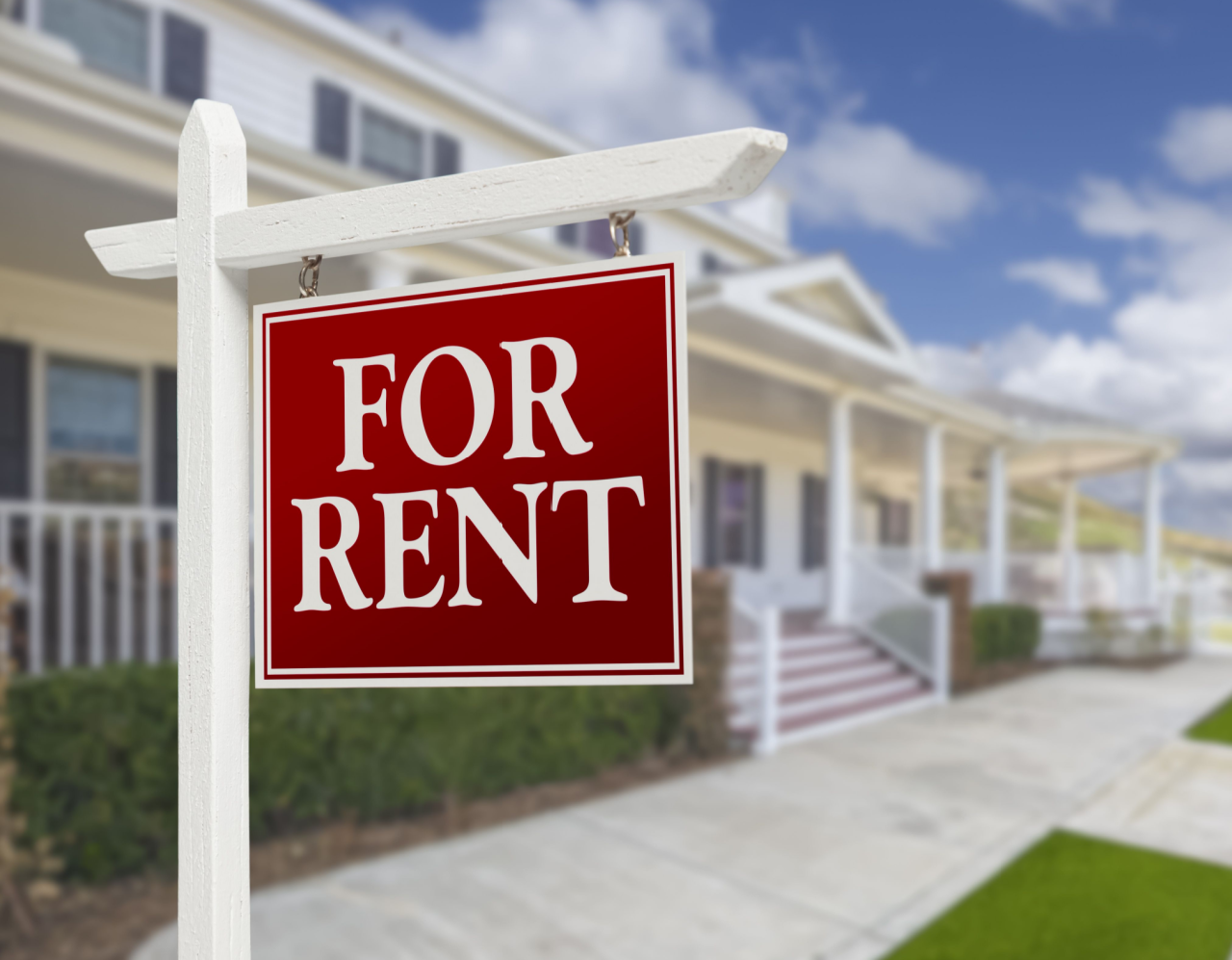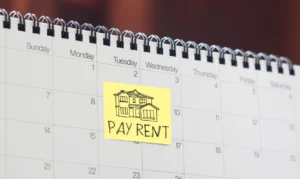Can I rent out my primary residence?

Yes, You Can Rent Out Your Primary Residence—Here’s How
Yes, renting out your primary residence can be a great way to generate additional income, especially if you have unused space or plan to be away for an extended period. But before doing so, there are several things to consider first:
-
Local zoning laws: Some areas may restrict the frequency or duration of specific types of rentals, such as short-term or medium-term rentals, so keep this in mind if you plan to offer more than 12-month lease options.
-
Homeowners Association (HOA) rules: If you live in a community with an HOA, check their regulations as some may limit or ban rentals, even if they are occasional.
-
Tax implications: Rental income is taxable, but you may qualify for deductions like property maintenance, insurance, or even a portion of your mortgage interest. To be fully sure on your eligibility for these deductions, consult a tax professional.
-
Insurance coverage: Review your homeowner’s insurance policy to ensure it covers rental activities. You may need additional landlord insurance to protect against potential risks such as property damage or tenant injury.
-
Finding the right tenants: Finding reliable and trustworthy tenants requires a thorough screening process that abides by Fair Housing and local landlord-tenant laws. Use a reputable rental platform to screen applicants and check references. Additionally, ensure your rental terms and expectations are clearly stated in your rental listing and during property showings to avoid hiccups.
Pros and cons of renting out your primary residence
Before diving into the rental process, it’s essential to weigh the pros and cons to decide if this path is right for you.
Pros
-
Steady income stream: Renting out your home can generate a consistent monthly income, helping to cover mortgage payments, taxes, and maintenance costs.
-
Potential tax benefits: You may be able to deduct certain expenses related to maintaining the rental, like repairs, property management fees, and mortgage interest.
-
Maintain property ownership: Renting allows you to retain ownership, potentially benefiting from long-term appreciation without needing to sell the home.
-
Flexibility: If you plan to return to the area, renting allows you to keep the home available without committing to a sale.
Cons
-
Landlord responsibilities: Being a landlord involves managing tenant relationships, handling repairs, and addressing emergencies, which can quickly become time-consuming.
-
Financial risks: Vacancies or non-paying tenants can result in gaps in rental income, making it essential to budget for these unexpected events.
-
Potential for property damage: Tenants may not take care of your home as much as you would, which can lead to wear and tear or unexpected repairs.
-
Tax complexity: Renting changes the tax status of your property, requiring a deeper understanding of what deductions you qualify for and how rental income is taxed.
Free Rental Application
Get 20 Rental Forms for FREE, including a rental application.
How to rent out your primary residence
Below is an overview on how to rent out your primary residence.
1. Consider the pros and cons
Renting out a home can provide a steady income stream that can help you cover monthly mortgage payments, property taxes, and unexpected maintenance costs. This also allows you to keep your home as a long-term investment, potentially benefiting from appreciation in the housing market while someone else helps pay down your mortgage.
However, you’ll need to manage tenant relationships, address maintenance issues promptly, and ensure compliance with local regulations. Financial risks, such as periods of vacancy or tenants failing to pay rent, can impact your income, making it essential to plan for such situations.
For that reason, make sure you weigh the pros and cons to ensure this path makes sense for you.
2. Determine your rent price
Research comparable properties in your area to find out the going rates for similar homes. Using tools like trusted rent analysis reporting can provide valuable insights into market trends and help you set a competitive price that attracts quality tenants while covering your expenses.
Beyond rent income, consider other costs like insurance, property management (if applicable), and ongoing maintenance. Transitioning your home into a rental can also change its tax status, which may allow you to deduct certain expenses but also means you’ll need to report rental income and may lose the owner occupancy tax status, which lowers property tax rates.
Additionally, plan for the inevitable vacancies by setting aside a portion of your rental income to cover mortgage payments during periods without tenants.
3. Prepare your home for tenants
A well-maintained and attractive property can help you secure trusted tenants and minimize vacancy times. Start with a thorough inspection of the home to identify any necessary repairs or updates, such as fixing leaky faucets, updating old appliances, and addressing any safety concerns like faulty wiring or broken railings.
Ensuring that smoke and carbon monoxide detectors are functional and compliant with local regulations is also a must. In addition to repairs, consider improving the home’s appeal with cosmetic upgrades like a fresh coat of paint or new landscaping.
First impressions matter, and small improvements can make your property stand out in a crowded rental market. Professional cleaning is highly recommended, as a clean home sets a high standard for new tenants. It’s also worth investing in high-quality photos, which are crucial for online rental listings. A visually appealing listing can attract more interest, reducing the time your property sits vacant.
4. Research your local laws
Understanding and complying with local rental regulations is critical to avoid potential legal issues. Start by researching landlord-tenant laws in your area, as these laws govern important aspects like security deposit limits, tenant screening procedures, and the eviction process.
You will also need to be aware of Fair Housing laws to avoid discriminating against prospective renters.
5. Create a comprehensive lease agreement
Your lease agreement is the most important document in your landlord-tenant relationship. It should clearly outline all terms and conditions, including the rent amount, due date, lease length, and any penalties for late payments. Defining the responsibilities of both the landlord and the tenant, such as who handles yard maintenance or minor repairs, helps prevent misunderstandings.
In addition to the basics, include specific clauses that address your expectations around property use. For example, you might set rules regarding pets, smoking, or subletting. These details can save you from potential disputes later.
6. Screen and select the right tenants
Choosing the right tenants is key to a positive rental experience. To do this, start with a standardized rental application that asks for details like employment history, income, and rental references. Then request thorough background and credit checks to verify their financial stability and rental history.
It’s also a good idea to conduct a brief prescreening interview prior to scheduling showings to get a sense of their personality and lifestyle. This can help you determine if they are likely to respect your property and abide by the lease terms.
7. Set up online rent collection and track finances
Streamlined rent collection is essential to keep track of all your finances related to your rental business. While you can collect checks or cash, opting for online payment options makes it easier for tenants to pay on time and allows you to keep detailed records of each transaction.
It’s also important to keep accurate records of all rental income and expenses as you will need to report your rental income.
Track everything from rent payments and maintenance costs to upgrades and repairs. These records can also be crucial if you need to resolve disputes with tenants or prove expenses for tax deductions.
8. Maintain the property and address issues promptly
Maintenance is a key responsibility for landlords and can greatly affect tenant satisfaction. Establish a clear process for tenants to report maintenance issues, whether it’s through a dedicated email, phone number, or online portal. Promptly addressing issues, such as a broken appliance or a plumbing problem, can prevent minor issues from becoming costly repairs and shows tenants that you care about the condition of the home.
Regular seasonal inspections are also recommended. These can help you spot potential issues early, such as leaks in the roof or wear and tear on major systems like HVAC. Keeping the property in good condition not only retains its value but also encourages tenants to renew their leases, reducing turnover.
9. Manage vacancies and advertise effectively
No matter how great your rental is, vacancies are bound to happen. Planning ahead can help minimize the impact on your income. Start by ensuring that your listing reaches as many potential tenants as possible. List your rental property across multiple platforms such as Realtor.com® and other high-traffic sites.
During vacancy periods, offer virtual tours or video walkthroughs to make your property more appealing to prospective tenants, especially those relocating from out of town. If you find that your rental remains vacant longer than expected, reassess your rental price.
10. Reevaluate your rental strategy regularly
The rental market is constantly evolving, and so should your approach to managing your property. Review your rental rates annually to ensure they align with market trends and adjust them if necessary. It’s also essential to stay updated on changes in rental laws that might affect your lease agreements or tenant rights.
Regularly updating your lease ensures compliance and protects you from potential disputes.
Can I still deduct mortgage interest if I rent out my primary residence?
Yes, you may be able to deduct mortgage interest on a rental property, but it’s treated differently than for a primary residence. You can also deduct expenses like maintenance and property management fees as business expenses. Consult with a tax advisor for details specific to your situation.
How do I transition back into my home after renting it out?
To move back into your home, you’ll need to ensure your lease agreement includes a clause specifying the lease’s end date or a renewal option.
Give your tenants proper notice based on local regulations—typically 30 to 60 days. It’s also helpful to conduct a move-out inspection to ensure the home is in good condition before returning.
What insurance do I need when renting out my home?
Regular homeowners insurance typically won’t cover damages or liability when you rent out your home. You’ll need landlord insurance, which covers property damage, loss of rental income, and liability issues. Be sure to ask your tenants to get renters insurance to protect their personal belongings, as well.
Source: Realtor.com













 Accessibility
Accessibility